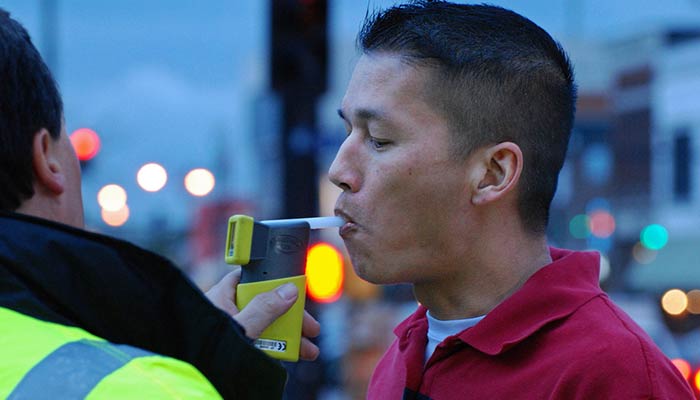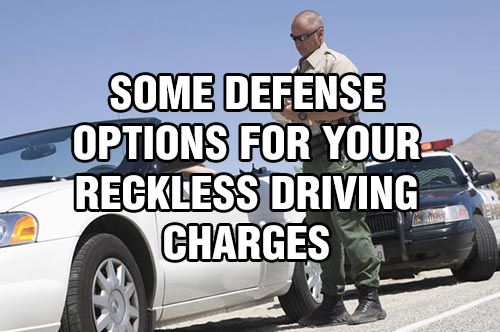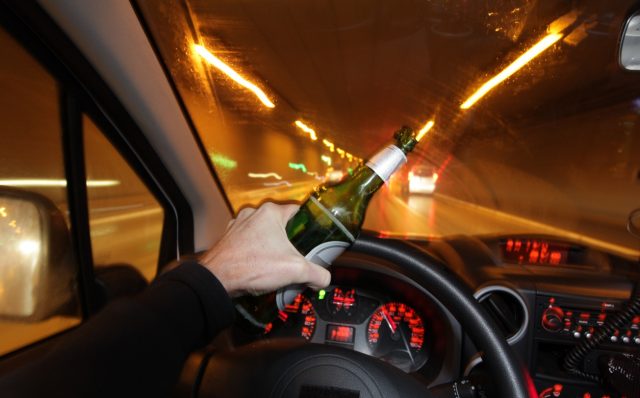In all states, it is a crime to operate a motor vehicle under the influence of alcohol or drugs. The specific offense may be called driving under the influence” (Driving Under Influence DUI), “driving while intoxicated” or Driving While Intoxicated, DWI), “operating under the influence” (Operating Under the Influence, OUI), and even “operate a motor vehicle while intoxicated” (Operating a Motor Vehicle Impaired, OMVI). Beyond the denomination, the DUI laws dictate that it is illegal to drive a car, truck, motorcycle, or commercial vehicle if:
- the ability of the person driving the vehicle safely is diminished by the effects of alcohol, illicit drugs, prescription drugs such as painkillers, or otc medications such as antihistamines; or
- the level of intoxication of the driver exceeds the limits of DUI established, as the concentration of alcohol in the blood.
Field Sobriety and Chemical tests
When a law enforcement officer stops a vehicle because he suspects the driver may be intoxicated, this makes an examination of “sobriety” to the driver and may request your consent to carry out some type of proof of intoxication with chemical substances.
In general, tests consist of asking the driver to perform a series of tasks to evaluate any decline in physical or cognitive condition of the person. Some examples of tests include: make the driver walk in a straight line, supporting from the heel to the toes; to recite the alphabet backwards; and the officer use the test of “horizontal nystagmus” (eye and penlight).
The testing of chemical substances can be performed when you stop the vehicle, using a breathalyzer that measures the alcohol concentration in blood, or in a hospital, with an analysis of urine and blood. Many states allow the driver suspected of DUI to choose which type of test of chemical substances to undergo.
Refusing a Chemical Test: “Implied Consent” Laws
All states have laws of “implied consent” that require vehicle drivers to submit to some kind of test of chemical substances, such as the breathalyzer or blood or urine, if suspected of DUI. The logic behind these laws is that, the privilege of driving a vehicle on the streets and highways of a state is clear that drivers have given consent to testing for DUI when a police officer believes, reasonably, that the driver is under the influence of alcohol or drugs.
If a driver refuses to submit to such tests, the laws of implied consent, stipulate penalties such as the suspension of compulsory license, typically for a period of six months to a year. Often, the sanctions relating to the license for refusing to submit to testing are more severe than those imposed for failing a test for DUI. In most states, the fact that a driver refuses to submit to a test chemical can be used to aggravate the sanctions imposed in the case of the convict for DUI.
“Per Se” and “Zero Tolerance” DUI Laws
All states have DUI laws that deem “intoxicated per se” any driver with a blood alcohol concentration above the imposed limit (currently 0.08 in all states). This means that drivers with a blood alcohol concentration of 0.08 or greater are legally intoxicated and you don’t need more evidence of intoxication.
In addition, all states have laws of “zero tolerance” aimed at drivers under the legal drinking age. These laws penalize persons under 21 for operating a vehicle with any trace of alcohol in your body (a blood alcohol concentration above 0.0), or with insignificant levels of alcohol in the blood, such as 0.01 or 0.02.
Remember that a driver can be arrested and convicted for DUI even without proof of intoxication “per se”, when there is evidence that his abilities were impaired while driving. For example, you may plead guilty of a DUI offense for a driver with a level of blood alcohol concentration of 0.06 if the officer who arrested him, declares that he observed how the vehicle swung awkwardly and the driver showed signs of slurred speaking and severe inattention during questioning after a vehicle stop.
DUI convictions: Criminal Penalties
A DUI conviction can mean penalties such as fines, imprisonment, probation and community service. Some state laws impose minimum penalties for offenders first-timers, which is made worse every time you relapse. The severity of the penalties will vary according to the circumstances of the offense, including:
- if the driver has record of violations of DUI;
- if the driver was driving a commercial vehicle when committed the DUI;
- if the DUI offense occurred while a minor was in the vehicle;
- if the DUI happened at the same time that another violation dangerous of the law, such as, for example, driving recklessly;
- if the DUI offense resulted in an accident that caused damage to the property;
- if the DUI offense resulted in an automobile accident in which there were other people injured or killed; and
- if the driver had not reached the minimum legal age to consume alcohol at the time of the violation DUI.
See also: DUI Sentencing
Arrest and Conviction for DUI: Sanctions On Driving Privileges
In addition to possible sanctions, an arrest or conviction for DUI will have an immediate negative impact on driving privileges.
Most state laws allow the departments of motor vehicles to immediately suspend the driver license of any person operating a motor vehicle with a blood alcohol concentration above the limit of intoxication established by the state, or of any driver who refuses to take the test of blood alcohol concentration.
Also, you can confiscated the vehicle of the driver and it is likely that the DUI offender be required to pay administrative costs substantial. This loss of privileges can occur even before a DUI conviction. The majority of the states allows the driver arrested for DUI to get a provisional license and request an administrative hearing in which you can appeal the suspension of your license, or apply for the restoration of certain limited privileges.
As in the case of sanctions, the impact of an arrest or DUI conviction on driving privileges will vary according to the history of violations of the DUI driver and the severity of the offences.
A penalty of DUI increasingly more common, especially for repeat offenders, is mandatory installation of a device to “lock on” in the vehicle of the offender. This device scans the breath of the driver, measures your blood alcohol concentration and prevents you from operating the vehicle if the alcohol level detected is greater than the established by the law, as a level of concentration above 0.02. When you use this punishment, most states require the DUI offender to pay the costs of installation, rental and maintenance of the ignition interlock device. The rental costs are high, sometimes up to three dollars a day, so a DUI offender could expect to pay a lot of money if you are ordered to use an ignition interlock device.
Plea Bargains in DUI Cases
Due to the recent trends that focus on the prevention of the crime of DUI by severe penalties to the offenders, the majority of the district attorneys refuse to negotiate plea bargains in DUI cases. This is especially true if the evidence of the violation are strong. In fact, many states have enacted laws that prohibit state attorneys to negotiate or accept agreements with the defendants. Sometimes, however, a charge for DUI can be reduced to a minor infraction, such as driving recklessly, or a violation of “open beverage”.
Find a Lawyer who Specializes in DUI
If you or a family member is arrested for DUI, you may need the services of a lawyer who specializes in DUI. A lawyer who specializes in defending charges of DUI will evaluate all of the evidence, including the procedure and results of field sobriety tests and chemical substances, to ensure protection of their rights. In addition, it is important to speak with an attorney familiar with the laws of your jurisdiction. Most offer free consultations, so your first step should be to contact a lawyer who specializes in DUI.










